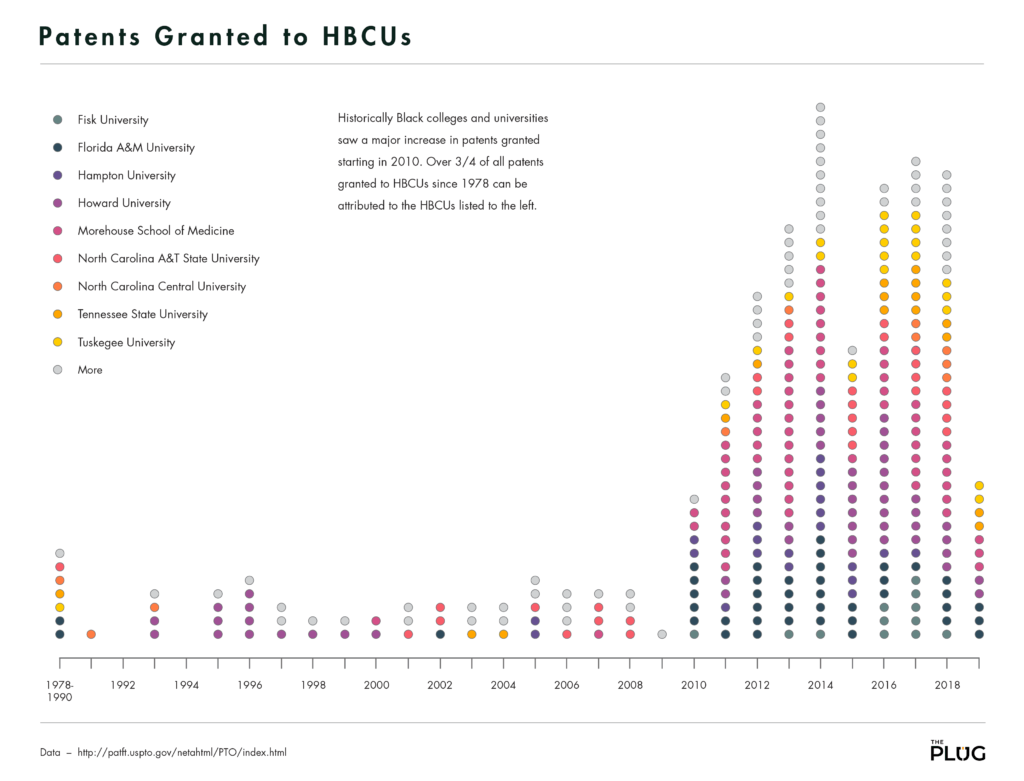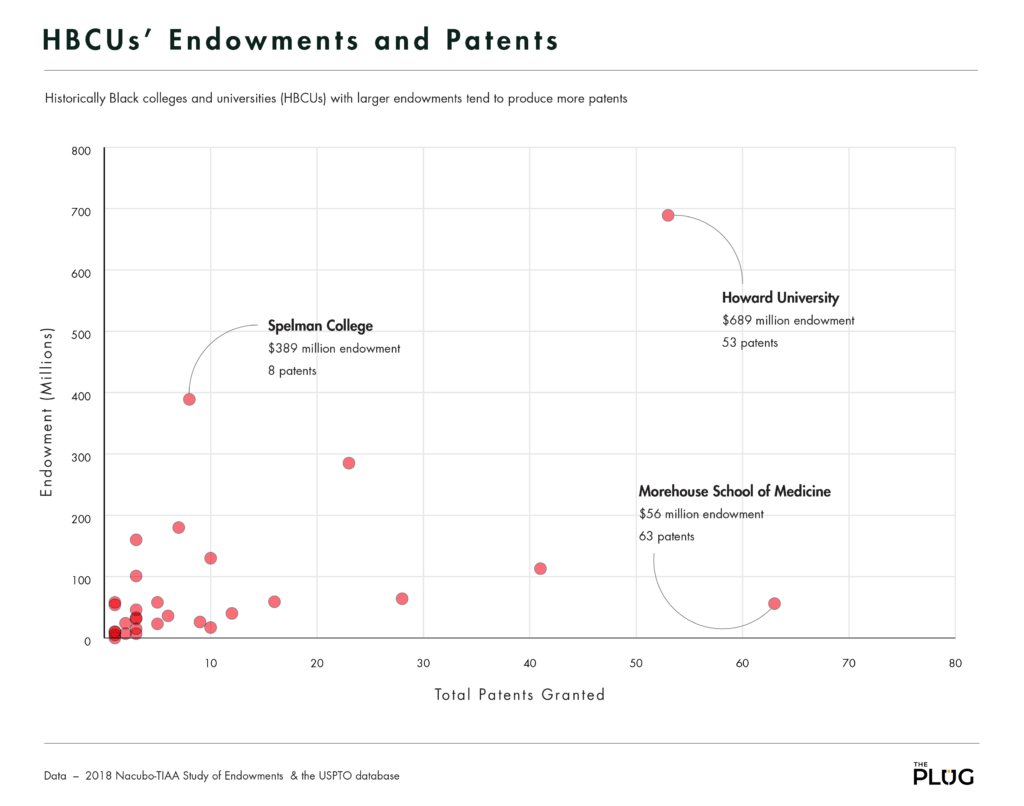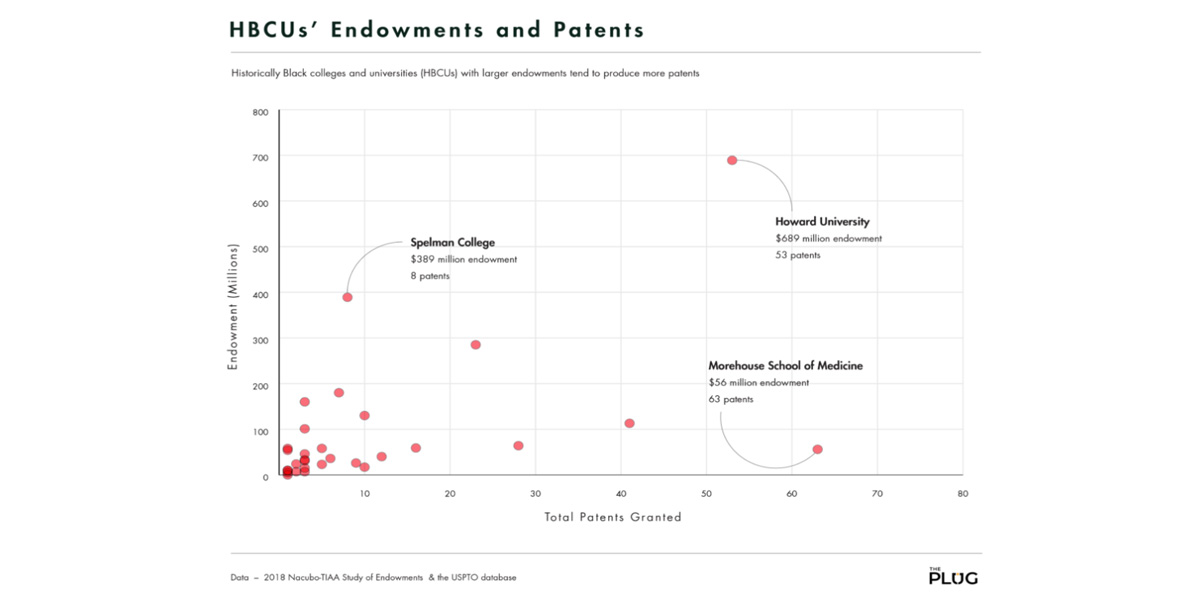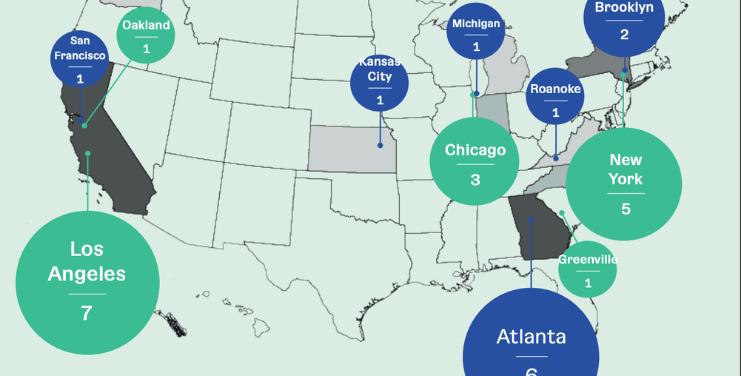In our last data story, we explored the United States Patent & Trademark Office’s (USPTO) database of patents granted at historically Black colleges and universities. Because the USPTO dataset only includes data between 1978 and 2012, our team conducted a deep dive into the database to determine how HBCUs have fared in intellectual property development in recent years.
The data shows that in the past decade HBCUs have seen a proliferation of new intellectual property. Overall, a total of 30 different HBCUs own patent rights. Morehouse School of Medicine currently holds the most patents of any HBCU with a total of 63 granted between 2000 to 2019. Howard University and Florida Agricultural and Technical University hold 53 and 41 patents, respectively.
The visualization below shows the total number of patents amassed by HBCUs since 1978.

It’s unsurprising that the universities and colleges with the highest endowments tend to be at the forefront of intellectual property development. Schools with smaller endowments tend to have less than 20 patents to their name while schools like Howard University, holding the largest endowment of any HBCU, has a total of 53 patents. Despite the overall trend, there are a few exceptions that are under or overperforming. Morehouse School of Medicine, for example, has a comparatively small endowment of $56 million, however, the institution produced the most patents of any HBCU. On the other hand, Spelman College, which boasts an endowment of $389 million, has only produced eight patents over the last four decades.

The vast majority of university patents are generated through the fields of medicine or science, and not all schools have a large focus in these areas. Similarly, medical schools and universities that focus heavily on the sciences are naturally more likely to be more prolific generators of intellectual property.








